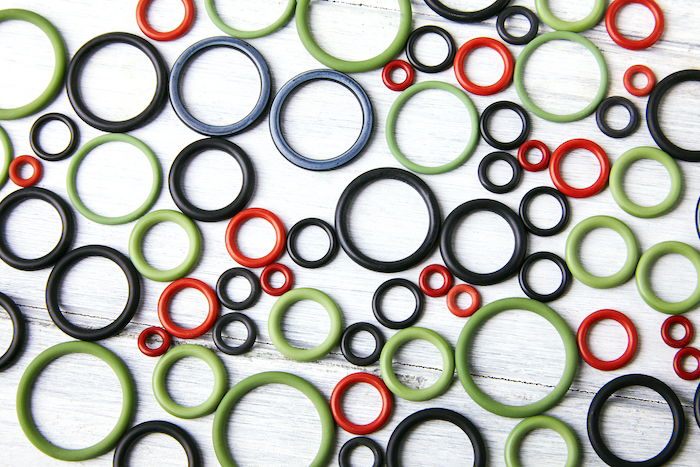
Small, but critical, components such as seals, O-rings, gaskets, and hoses are exposed to the harshest environments in oil & gas operations or as parts of vehicle engines. Fluoroelastomers are often the top choice for these tiny rubber parts due to the requirement to resist synthetic oils, corrosive fumes, chemicals, ultra-high temperatures and pressure. Depending on the final application requirements, conductive compounds based on carbon black or reinforced formulations based on silica are two types of widely used FKM formulations for the most vital sectors.
New technology has been developed to further improve both of these FKM formulas, which can help to reduce material consumption and save maintenance costs. A solution based on TUBALL graphene nanotubes, produced by OCSiAl, allows manufacturers to enhance all mechanical properties including prolonged durability, and also provides electrical conductivity to FKM.
In carbon black-based FKM formulation, it has been proven that introducing as low as 3% of graphene nanotube concentrate can neutralize carbon black’s negative impacts on flexibility and elasticity, which otherwise result in hardening and a reduced life cycle for the final products. Nanotubes make it possible to achieve electrical resistivity of 5 Ohm*cm, and at the same time to improve tensile and tear parameters by 30–40% without a reduction in elasticity, according to data after heat and fuel C aging.
In silica-based FKM, the addition of graphene nanotubes results in increased resistance to synthetic fuels and heat, improved tensile strength and M100 (or modulus 100) by up to 30%, increased abrasion resistance by up to 20% and enhanced tear strength by up to 90%. Moreover, tests have proven that these improvements to mechanical properties are maintained throughout extensive heating. Additionally, graphene nanotube-enhanced, silica-based FKMs offer electrical conductivity below 10 Ohm*cm.
These advancements of high value not only in oil & gas and auto industry, but also in some specific applications, such as in production areas with automated systems and sensors where color and electrostatics are required for identification of parts by robots.
The unique properties offered by graphene nanotubes give more freedom to FKM compounders to upgrade rubber formulations by reducing filler content and improving polymer stability in austere environments, which results in economic benefits to a number of key industries.
